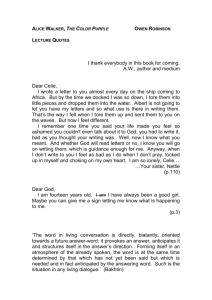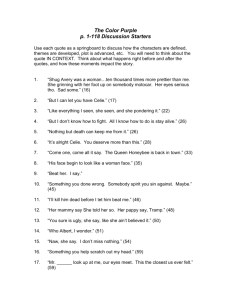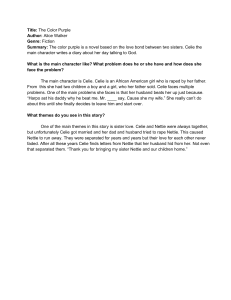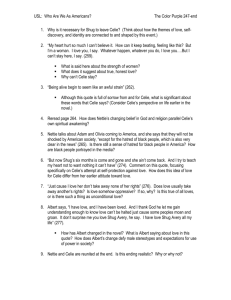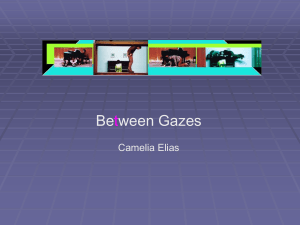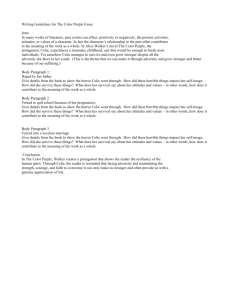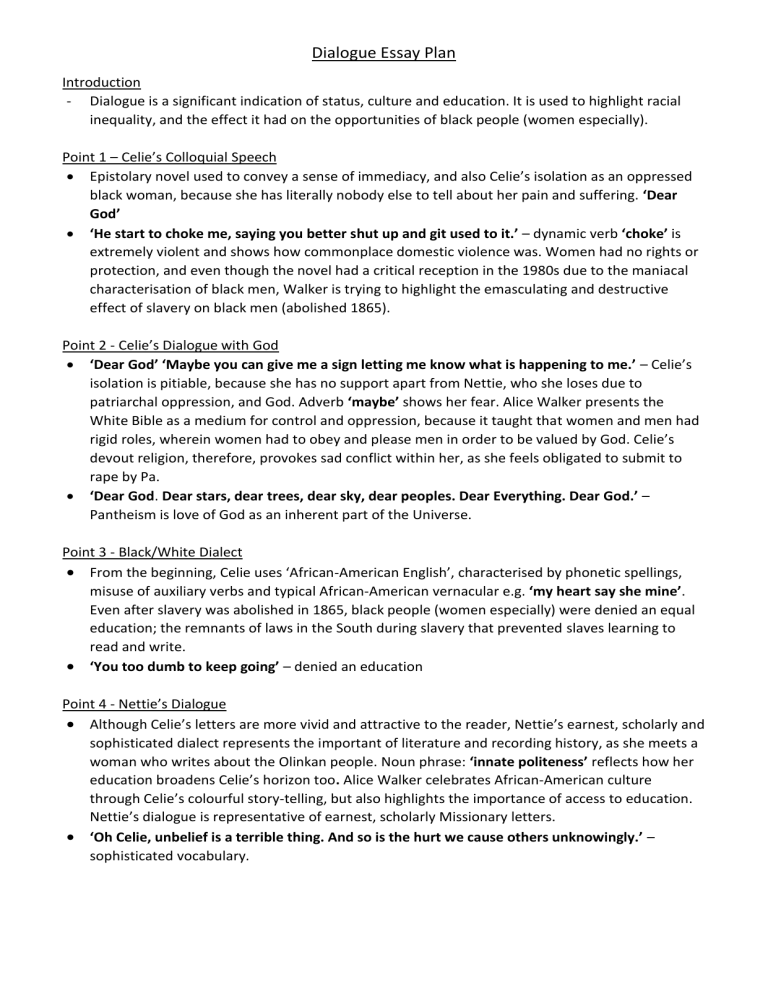
Dialogue Essay Plan Introduction - Dialogue is a significant indication of status, culture and education. It is used to highlight racial inequality, and the effect it had on the opportunities of black people (women especially). Point 1 – Celie’s Colloquial Speech Epistolary novel used to convey a sense of immediacy, and also Celie’s isolation as an oppressed black woman, because she has literally nobody else to tell about her pain and suffering. ‘Dear God’ ‘He start to choke me, saying you better shut up and git used to it.’ – dynamic verb ‘choke’ is extremely violent and shows how commonplace domestic violence was. Women had no rights or protection, and even though the novel had a critical reception in the 1980s due to the maniacal characterisation of black men, Walker is trying to highlight the emasculating and destructive effect of slavery on black men (abolished 1865). Point 2 - Celie’s Dialogue with God ‘Dear God’ ‘Maybe you can give me a sign letting me know what is happening to me.’ – Celie’s isolation is pitiable, because she has no support apart from Nettie, who she loses due to patriarchal oppression, and God. Adverb ‘maybe’ shows her fear. Alice Walker presents the White Bible as a medium for control and oppression, because it taught that women and men had rigid roles, wherein women had to obey and please men in order to be valued by God. Celie’s devout religion, therefore, provokes sad conflict within her, as she feels obligated to submit to rape by Pa. ‘Dear God. Dear stars, dear trees, dear sky, dear peoples. Dear Everything. Dear God.’ – Pantheism is love of God as an inherent part of the Universe. Point 3 - Black/White Dialect From the beginning, Celie uses ‘African-American English’, characterised by phonetic spellings, misuse of auxiliary verbs and typical African-American vernacular e.g. ‘my heart say she mine’. Even after slavery was abolished in 1865, black people (women especially) were denied an equal education; the remnants of laws in the South during slavery that prevented slaves learning to read and write. ‘You too dumb to keep going’ – denied an education Point 4 - Nettie’s Dialogue Although Celie’s letters are more vivid and attractive to the reader, Nettie’s earnest, scholarly and sophisticated dialect represents the important of literature and recording history, as she meets a woman who writes about the Olinkan people. Noun phrase: ‘innate politeness’ reflects how her education broadens Celie’s horizon too. Alice Walker celebrates African-American culture through Celie’s colourful story-telling, but also highlights the importance of access to education. Nettie’s dialogue is representative of earnest, scholarly Missionary letters. ‘Oh Celie, unbelief is a terrible thing. And so is the hurt we cause others unknowingly.’ – sophisticated vocabulary. Point 5 - Shug Dialogue When she first turns up at Celie’s house: ‘You sure is ugly’ ‘Naw, she say. I don’t miss nothing.’ – about her children. In the early 20th Century women were confined to a domestic sphere, and their main role was to raise children. Shug’s lack of maternal instinct and activity is another example of her strength and masculinity. ‘Girl, you look like a good time, you do.’ – to Sofia. Non-standard capitalisation of ‘Girl’ shows her masculine strength and power. Her dialogue reflects that of a man – she is bolder and more empowered than the other black women, defying gender stereotypes. Womanism = Alice Walker’s deeper, more inclusive form of feminism – female solidarity. Point 6 - Sofia ‘All your children so clean, she say, would you like to work for me, be my maid?’ - intensifier ‘so’ implies surprise and is extremely offensive as it illustrates the belief that black people were inferior and less civilised. Interrogative is patronising. ‘Sofia say, Hell no’ – repeated. Blaspheme reflects how Sofia speaks in a way that is completely inappropriate to the situation; she is fiery but racism is too great for her to fight. ‘They crack her skull, they crack her ribs’
